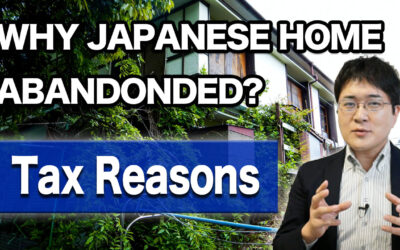In calculating Inheritance tax, certain liabilities can be subtracted from the assets you inherit.
Assets are cash, for example. And liabilities must be paid on behalf of the person who is gone.
If a person inherits JPY100 million and has JPY50 million in debt, the tax is calculated on the JPY50 million by subtracting it.
Furthermore, if the person has funeral expenses of JPY2 million, then the amount is further subtracted to JPY48 million, and the inheritance tax is calculated on this amount.
Then, can the expenses for the gathering on the first seventh day and the forty-ninth day be deducted?
These expenses cannot be deducted.
Let’s sort out the expenses that can be deducted and also try to understand the cultural aspects of the memorial services on the first seventh day and the forty-ninth day.
Ceremonies on the first seventh day and the forty-ninth day
What is the first seventh day?
Generally, Shonanoka, the first-seventh-day ceremony, is held on the seventh day after passing away, including the day of the decease. On this day, the deceased is said to arrive at the Sanzu River.
It is believed that the deceased is judged by King Enma(Yama) every seven days after death, and the first seven days are the day when the deceased crosses the Sanzu River to be considered for the first time.
Although it is an essential memorial service, it is difficult for relatives to gather again one week after the funeral. So, more and more memorial services are being held on the same day as the funeral, called Kuriage-houyou (monument services in advance).
Note that Kuriage-houyou is not very common.
As a general rule, Buddhist rites should not be delayed.
This is because, although we ask the Buddha to make the deceased’s reincarnation in a good place, if we delay it, it will be too late.
There are six reincarnation worlds.
In addition, the Christian understanding of heaven (paradise) is above these realms.
- The three good realms called Sanzendou are the Deva realm, the Human realm, and the Shura realm.
- The three evil realms called Sanakudou consist of the Animal realm, the Hungry Ghost realm, and the Hell realm.
However, it depends on the family’s thinking and local customs.
Some people think that even if it is delayed, it is an excellent opportunity for the family to get together.
Buddhism and Shinto are relatively flexible.
There was a case of forbearance every year during the COVID-19 epidemic.
Either way, we want to understand the meaning of the ceremony.
What is the forty-ninth day?
Shijukunichi, the forty-ninth-day ceremony, is held on the 49th day including the day of death.
Every seven days, the deceased is judged by King Enma, and he decides their destination.
Also, although it varies according to religious sects, it is on the day that the judgment is made as to whether or not a person can go to the Pure Land of the Land of Happiness.
Therefore, it is on the forty-ninth day that we pray for the deceased to attain Buddhahood (become a Buddha).
If a memorial service is held in advance, the forty-ninth day is the first opportunity to gather after the funeral.
In many cases, the bones are delivered on this day in Japan.
Comparison of what can and cannot be deducted from the Inheritance Assets
Certain expenses can be removed from the inheritance tax base amount.
The deductible examples are expressly indicated, and no other expenses can be deducted.
Of these, funeral expenses are deductible.
However, the costs of the gatherings on the first seventh day and the forty-ninth day are not considered funeral expenses.
Specifically, the following explanations are given.
No.4129 Funeral expenses deductible from inheritance AssetsWhat is considered a funeral expense
Funeral expenses that are deducted from the gross estate usually include the following.
(1) Expenses incurred for the cremation, burial, and delivery of the remains at or before the funeral or burial (if both a provisional funeral and a formal funeral are held, the expenses incurred for both are allowable).
(2) Expenses incurred in transporting the body or remains
(3) Expenses incurred before and after the funeral ceremony that are not generally associated with a funeral (e.g., expenses incurred at a wake, etc.)
(4) Expenses incurred in paying a temple or other institution a fee for sutra chanting or other services at the time of the funeral
(5) Expenses incurred in searching the body or transporting the corpse or remains.
Expenses are not included in funeral expenses.
The following expenses are not included in the funeral expenses deducted from the gross estate
(1) Expenses incurred to return funeral gifts
(2) Expenses incurred for the purchase of a headstone or cemetery or for renting a cemetery.
(3) Expenses incurred for the first seven days of the seventh day of the seventh month, memorial services, etc.
However, if a funeral expense and an advance first seventh-day ceremony are not distinguished, it is considered deductible.
Do not miss the inheritance deadline.
The deadline for filing inheritance tax returns is ten months after you notice the inheritance, so it should be after the first seventh day and the forty-ninth-day ceremonies.
Although grief can make it challenging to consider a document work when a family member passes away, be careful not to delay the deadline.
The most common case of filing inheritance tax returns is when you consult a tax accountant or other professional at the last minute.
It can be hard to prepare a tax return in a short period when considering the preparation of an inventory of assets and a site survey of land and other property.
If you delay, you may be unable to use tax benefits, such as the notable exception for small residential lots, etc., and the tax amount may jump.
First, we hope you will consult with me as soon as possible.



